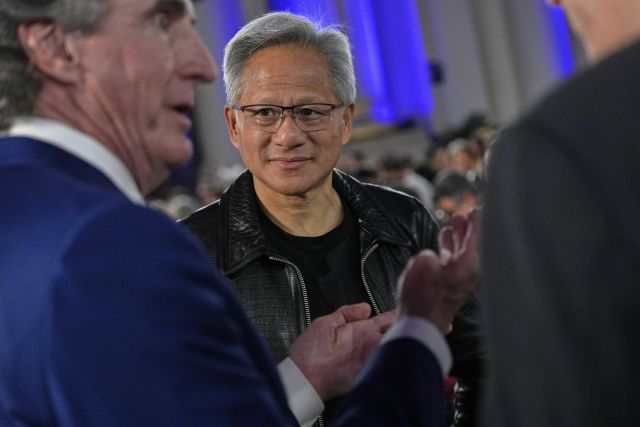China’s cyberspace regulators have issued a significant summons to Nvidia, a leading U.S. chipmaker, citing serious security concerns regarding its H20 chips. This move intensifies the ongoing technological rivalry between the two global powers, focusing squarely on potential “backdoor safety risks” that could allow remote tracking and deactivation of these critical components. The unprecedented demand underscores Beijing’s heightened focus on digital sovereignty and the integrity of its technological infrastructure, particularly concerning foreign-developed hardware.
During the high-stakes meeting, Chinese officials reportedly pressed Nvidia for comprehensive explanations and supporting documentation regarding these alleged “backdoor safety risks” associated with H20 chips intended for sale in the Chinese market. This formal inquiry highlights a deep-seated apprehension within Beijing about the control and accessibility of advanced computing hardware, reflecting broader national security imperatives in the burgeoning digital age. The detailed demands signify a rigorous examination, pushing for transparency and assurances from the American semiconductor giant.
In response to Beijing’s assertions, an Nvidia spokesperson firmly denied the presence of any “backdoors” in their chips, emphasizing that such features would not grant remote access or control to any third party. This denial reinforces Nvidia’s commitment to cybersecurity and its product integrity, even as it navigates complex international regulatory landscapes. The company’s immediate rebuttal indicates the gravity of the accusations and its efforts to safeguard its reputation and market position amidst geopolitical scrutiny.
This recent summons by China follows closely on the heels of the Trump administration’s decision to lift export restrictions on H20 chips, allowing Nvidia to resume sales to the lucrative Chinese market. The swift re-engagement of Chinese regulators after this policy shift suggests that while market access was restored, underlying security concerns remained paramount for Beijing. The timing of this new challenge indicates a proactive stance by China to scrutinize the technology entering its borders, irrespective of U.S. export policies.
Chinese regulators, citing unnamed U.S. artificial intelligence experts, conveyed their belief that Nvidia possesses sophisticated technology capable of tracking, locating, and remotely disabling its computing chips. This assertion formed a crucial basis for the summons, with Beijing emphasizing its duty to “safeguard the cybersecurity and data security of Chinese users” in strict accordance with national laws. The very notion of remote control capabilities fuels anxieties over potential foreign interference and data integrity within China’s digital ecosystem.
The situation is further complicated by a parallel push from U.S. lawmakers who have advocated for integrating tracking and locating capabilities into advanced American chips sold internationally. For instance, the proposed Chip Security Act, introduced by Reps. Bill Huizenga and Bill Foster, sought to mandate “security mechanisms” to detect “smuggling or exploitation.” While this bill has not progressed, its existence highlights a shared, albeit differing, concern across both nations regarding chip security and control, creating a complex web of interwoven national interests.
Despite the recent lifting of some restrictions, the United States maintains a stringent ban on the export of its most advanced chips to China, vital components for cutting-edge artificial intelligence development. Both the U.S. and China are locked in a fierce competition to dominate the AI technology landscape, viewing it as crucial for future economic and military superiority. The H20 chips, though not Nvidia’s most advanced, still offer China capabilities that its domestically produced chipsets currently lack, intensifying the strategic importance of this trade and security nexus.
The concern articulated by U.S. legislators, such as Representative Moolenaar, underscores the geopolitical undercurrents, stating, “We can’t let the CCP use American chips to train AI models that will power its military, censor its people, and undercut American innovation.” This sentiment vividly illustrates the dual-use dilemma inherent in advanced technology, where civilian applications can readily serve military or state control objectives. The ongoing dispute over Nvidia’s H20 chips thus serves as a microcosm of the broader technological and ideological confrontation between global superpowers, with cybersecurity at its very heart.






Leave a Reply